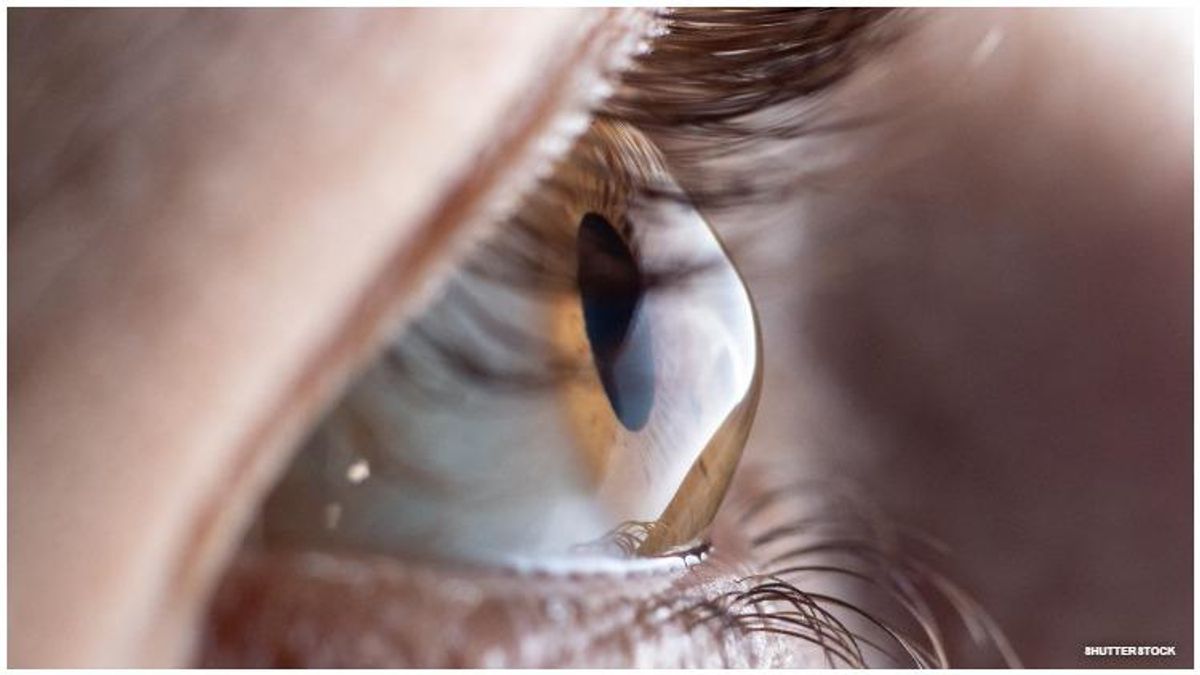Health
There's a Shortage of Eye Donors — Of Course Queer Men are Banned

Rejection of donations from men who have sex with men may leave thousands in the dark.
October 14 2020 9:00 AM EST
October 14 2020 9:05 AM EST
By continuing to use our site, you agree to our Private Policy and Terms of Use.

Rejection of donations from men who have sex with men may leave thousands in the dark.
A new study raises alarming questions about federal policies preventing corneal donations from men who are sexually active with other men. The peer-reviewed study which appeared in JAMA Ophthalmol contacted all but one eye clinic in the United States and Canada to study how the discriminatory donation policies against men who have sex with men (MSM) impact the supply of donated corneas. The United States prohibits donations from men who have been sexually active with other men in the previous five years, while Canada places a 12-month restriction. The report concluded that advances in testing and treatment render the current policies outdated and deny much need transplants to those in need.
The report entitled "Association of Federal Regulations in the United States and Canada With Potential Corneal Donation by Men Who Have Sex With Men" noted a "well-documented shortage of corneal tissue across the world, with millions of people in need of a corneal transplant." Despite this need, the United States still uses outdated premises regarding testing and communicability in determining policy on accepting donations from MSM. The United States exports thousands of corneas every year, so the impact of these restrictive federal policies is felt worldwide. The report notes that this policy also extends to family members who wish to donate "this vision-restoring tissue on behalf of their loved ones."
The authors of the report individually contacted every eye bank in the US and all but one in Canada, with 54 (83%) responding to their inquiries. Of those, 30 did not keep records regarding MSM deferrals. The remaining 24 eye banks (44 percent) reported 360 referrals (720 corneas) were rejected in 2018 due to MSM status. These 24 eye banks accounted for 46.2 percent of all corneal donations in the United States and Canada in the year observed. The report estimated 1558 corneas were rejected due to MSM status, while a "separate estimate using published MSM demographic data indicated up to 3217 potential corneal donations may have been disqualified in 2018 because of these federal policies."
There have been 10 reported corneal transplants from donors living with HIV since 1985 with zero transmissions noted, according to Healio News. This contrasts with positive test results from all but 12 recipients of solid organs from the same donors living with HIV.
The report notes the discriminatory policies date back to 1994 due to concerns about the transmission of HIV through corneal transplants. Screening tests used at the time were "unreliable up to six months after viral exposure" and a "categorical exclusion" was implemented for sexually active MSM as donors as a result. The report suggests that this policy is now outdated since "HIV testing has become reliable within 4 to 8 days" of exposure.
"With modern virologic testing that is reliable within days of HIV exposure and given the global shortage of corneal tissue," the report concludes, "these policies should be reevaluated using current scientific evidence to increase the availability of vision-restoring surgery worldwide."
RELATED | FDA Changes Blood Donation Guidelines for Queer Men